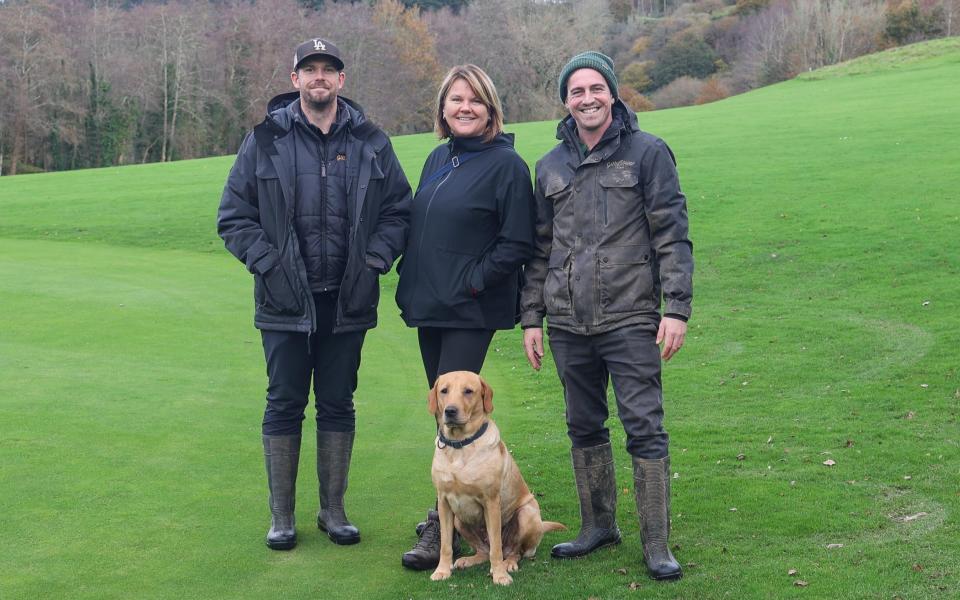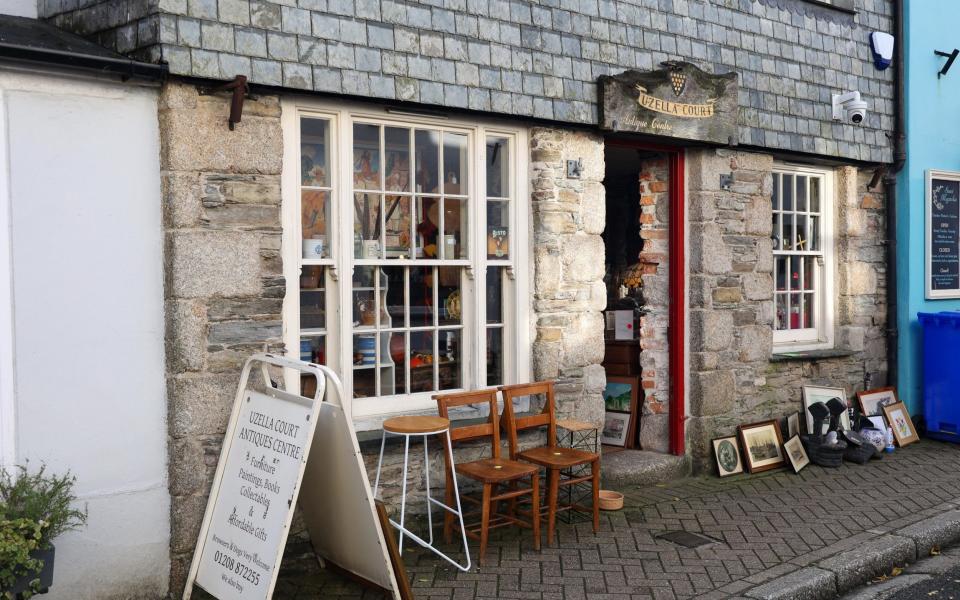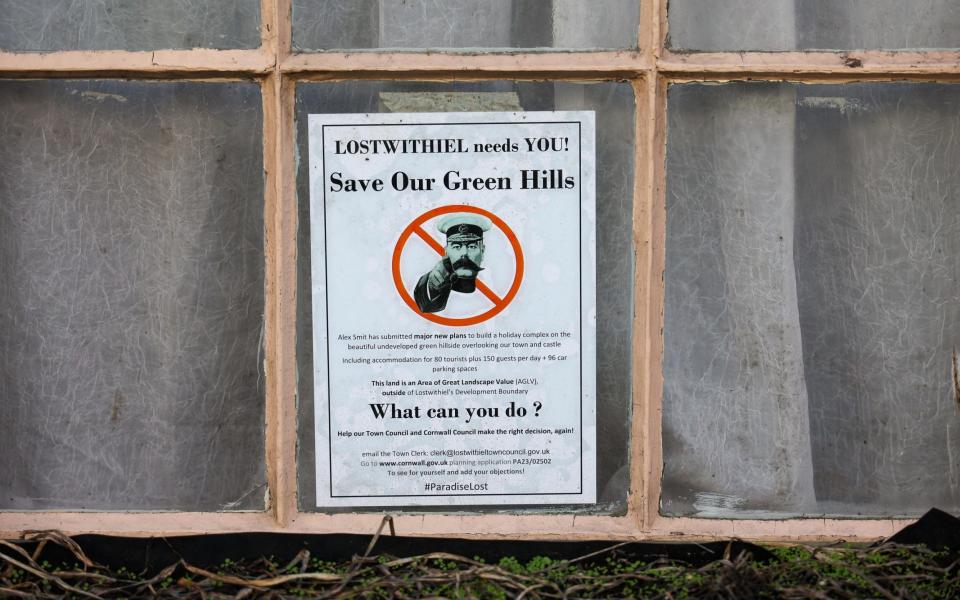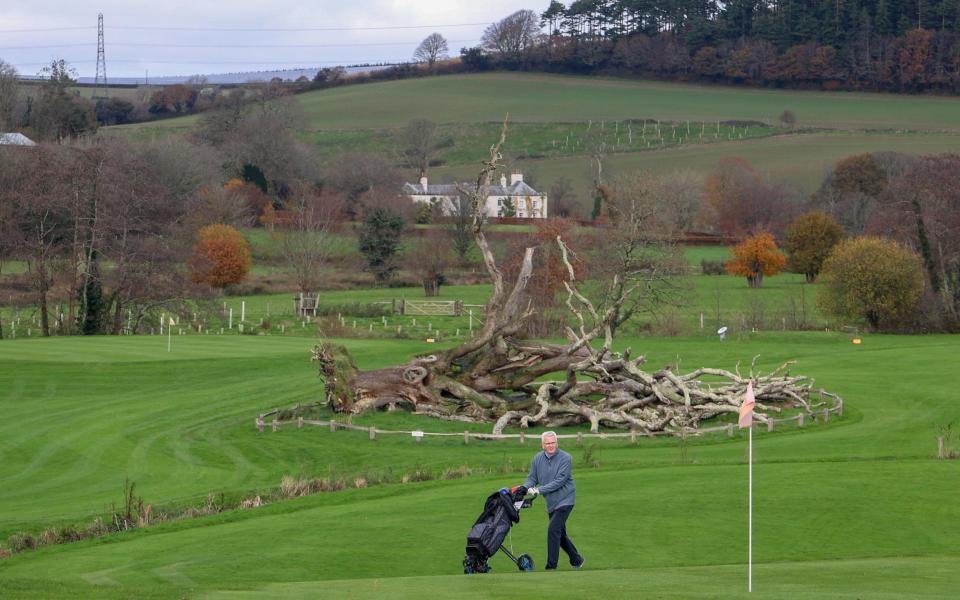Tucked away in the upper reaches of the Fowey Valley, the small town of Lostwithiel looks like a peaceful picture: a church tower towering over the flag-draped main street, a quiet river murmuring between the arches of a beautiful medieval bridge, and steep woodland. There are hillsides on all sides, and the ruined curtain walls of Restormel Castle are barely visible over the rooftops.
It’s a vision of jolly old England with a Cornish twist, but beneath the idyllic surface this is a town on the brink. Hot-button issues such as planning and tourism, which are a constant topic of debate in Cornwall, have caused a deep divide in society; This led to a two-year campaign of insults, vandalism and threats of violence.
The roots of the conflict lie on the outskirts of the city. Gillyflower Farm is a large and ambitious project carried out under the auspices of Dutch-born businessman Sir Tim Smit, who founded two of Cornwall’s most popular tourist attractions: the Eden Project and the Lost Gardens of Heligan.


Having bought a run-down golf course on the edge of Lostwithiel four years ago, Smit and his son Alex laid out their big plan: the size of the golf course would be reduced to make room for orchards; As well as a new clubhouse, there will also be 19 holiday homes, as well as a café, cookery school and a training center for agriculture and horticulture students.
The reaction was swift and uncompromising. A group of local residents have formed a campaign group to oppose the plans, claiming Tim Smit wants to “turn the landscape we love into a tourist attraction and make another few million off the land he bought for a song”. They attracted more than 300 objections, arguing that the proposed project would damage protected land, and the application was rejected in April last year.
A new and amended planning application has now been submitted, but tensions are still on the surface as residents await the final decision.
“The town has lost itself,” said one shopkeeper I spoke to. “There were threats, stickers were put on our windows. One [supporter of Gillyflower Farm] He had a note put in their mailbox that said: ‘You better stop this now, or next time it’ll be a tear gas bomb.’


“The truth is we need something like Gillyflower or the town will die. “Not enough people come here these days.”
If Lostwithiel is in a difficult situation, he hides it very well. The high street, Fore Street, has an air of prosperity not often found on Cornish high streets these days. There are bars and cafes, antique shops, a butcher and several souvenir shops; almost all of them seem independent and successful, but I couldn’t help but notice that on the cool Tuesday morning of my visit, almost no one was shopping.
“The only reason most of us are still going is because we own the buildings; if we were paying rent most of us would have gone bankrupt years ago,” another of the traders told me. He was also a supporter of the Gillyflower Farm development, but had tried to distance himself from this conflict as much as possible.
“It’s very toxic, although I don’t know exactly why. “I think this will attract people to the city and contribute a lot to the local people,” he added.
I spoke with several other business owners that morning, and most agreed that Smits’ suggestions could only be good for the town. However, no one wanted their names to be disclosed because they were afraid of reprisals they might face due to their speech. His refrain was always the same: “I don’t want a brick to fall on my window.”


That afternoon I took the short trip to Gillyflower Farm to meet Alex Smit, who was at the forefront of the project. Walking through orchards filled with young apple trees, he explained the vision he and his father shared for the site and admitted that he was caught off guard by the strength and ferocity of the opposition he faced.
“I am regularly asked if I know what I know now, if I would start this project again. The answer is a resounding ‘yes’. “I’m happy to own my mistakes and learn from them, but my mistakes don’t make this a bad project.”
To date, the Gillyflower team has planted more than 2,500 fruit trees, almost all of which are old varieties. The aim is to experiment with sustainable farming methods and find new ways to produce fruit in a profitable but environmentally friendly way.
There is a potager where similar trials are being conducted on crop production, and other members of his team are exploring ways to manage the nine-hole golf course while supporting biodiversity. Alex is adamant that the findings will be shared with farming and golf associations respectively, while produce from Gillyflower Farm will go to local businesses.


“We are not Russian oligarchs; We believe this is exciting and important, but we cannot afford to grow a project of this scale without a sustainable revenue stream to support it. We need boarding houses and a clubhouse to make the rest livable. “It was never about profit.”
Alex and his team bore the brunt of the anger of those opposed to Gillyflower Farm: Some balked on the street or in the town’s bars; Others’ cars were spat out. Even those working on Heligan and the Eden Project are hesitant to come to Lostwithiel in the current environment, fearing being deemed guilty by association. Still, they are determined to see the project through to completion.
“I have lived in Cornwall most of my life and in Lostwithiel for 13 years. This is my local town and I firmly believe this project will contribute positively to the community and landscape it currently exists in,” said Alex Smit.
“I know I can’t convince everyone who opposes the project to change their views, but that comes with the territory and that shouldn’t be a reason not to do something you really think is worth fighting for.”